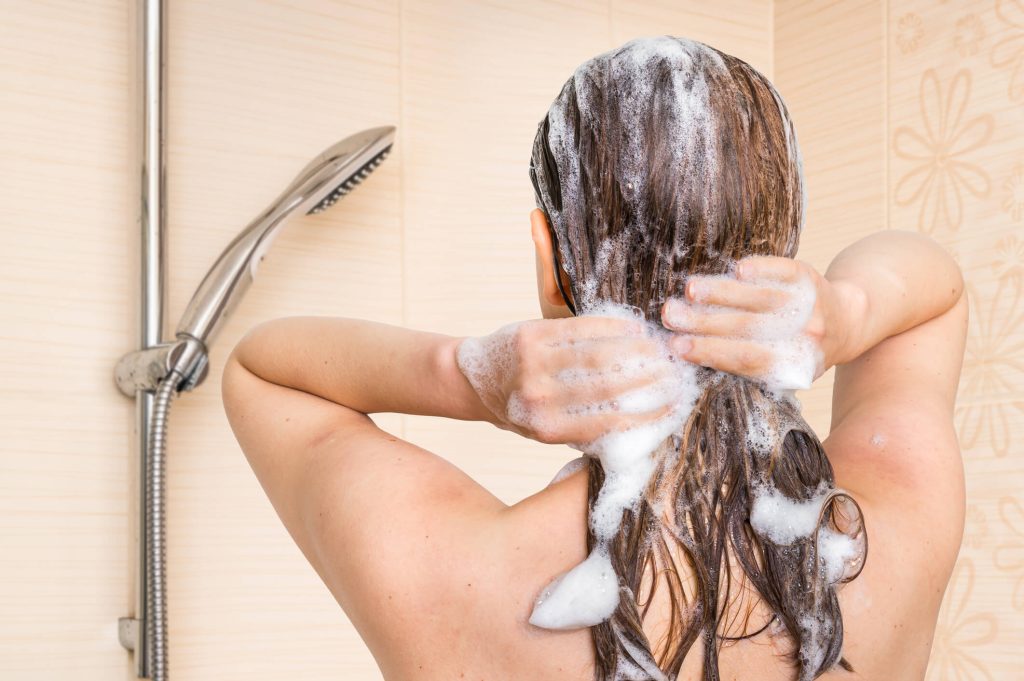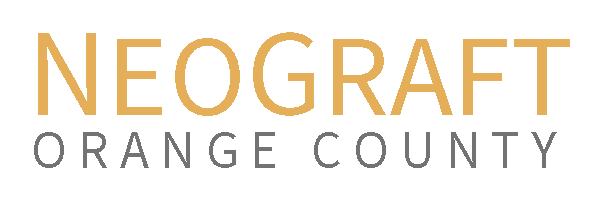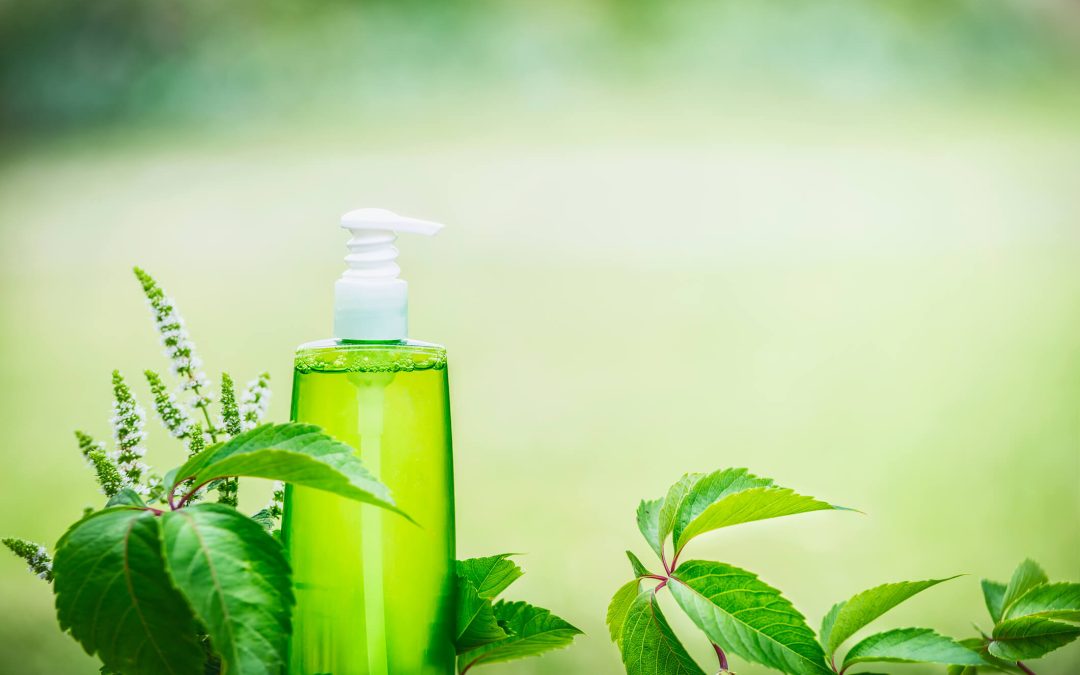Hair care is a vital part of many people’s daily routines, and choosing the right product is essential to maintaining the aesthetic quality of our hair and its overall health. Over the years, one of the more popular brands in the natural hair care market has been Native Shampoo, known for its focus on natural ingredients and unique scents such as coconut, vanilla, and almond. The question that often arises with the growing popularity of Native Shampoo, particularly among those concerned with maintaining healthy hair, is: Does Native Shampoo cause hair loss?
This blog post will explore the core ingredients of Native Shampoo, its potential impact on hair loss, and its overall effect on hair health. We’ll dive into whether this product is suitable for your hair care routine or if it might contribute to hair thinning or other scalp issues. Through a detailed analysis of ingredients, user reviews, and expert insights, we will help you understand whether Native Shampoo is the right choice for you. We’ll also cover the effectiveness of Native Shampoo when paired with their conditioner and other treatment options. With feedback from users and professionals, we’ll evaluate how well the product works to improve volume and hair health while taking a closer look at the effectiveness of Native Shampoo in addressing hair care concerns.
Understanding Hair Loss
Before we delve into the specifics of Native Shampoo, it’s essential to understand the potential causes of hair loss and how hair care products might contribute to or prevent it. Hair loss is a multifactorial issue, which can be caused by various factors, including genetics, health conditions, diet, hormonal imbalances, and, yes, the hair care products we use. Many reviews of hair products, including shampoos and conditioners, highlight how certain ingredients can promote healthy hair growth or contribute to hair loss. When choosing a product, it’s crucial to consider not just the product’s scent or fragrance but also the ingredients’ cons. Some products may offer an appealing option for fragrance but come with a downside, such as irritating chemicals or deodorant-like fragrances that might not be suitable for sensitive scalps. How a shampoo or conditioner interacts with your hair and scalp is essential in determining whether it will help prevent hair loss or exacerbate it.
The most common causes of hair loss include:
- Genetics: Hereditary hair loss, also known as androgenetic alopecia, is one of the most common causes of hair thinning and is influenced by genetic factors and age. This condition typically begins with a gradual thinning at the crown or temples and can sometimes progress into complete baldness. When considering hair care products to combat or manage this condition, it’s essential to look at brand reputation and whether their products are tailored to different hair types. Each hair type reacts differently to products, so researching the right Shampoo and conditioner for your specific needs can lead to better results. Information about how the product works for various hair types can help you make an informed decision when selecting a treatment for hereditary hair loss.
- Hormonal Imbalances: Hormones play a significant role in hair growth and shedding. Conditions like pregnancy, menopause, and thyroid imbalances can cause significant hair texture and density changes, leading to temporary or long-term hair loss. When selecting hair care products, it’s essential to consider the content and transparency of the formulation. A good product will list its ingredients and highlight the pros of each. For example, some shampoos and conditioners may contain harsh dyes or chemicals that could irritate the scalp, leading to further hair issues. A list of ingredients and transparency about what’s included allows consumers to make better choices, ensuring the product supports healthy hair without contributing to hair loss.
- Nutritional Deficiencies: A lack of essential vitamins and minerals, such as iron, vitamin D, and biotin, can contribute to hair shedding. If your body isn’t receiving enough nourishment, your hair might not grow as efficiently. When looking for supplements or products to support hair growth, targeting the right ingredients that address your needs is essential. Many bottles of hair growth supplements can be found in stores, but it’s essential to read reviews and compare prices to ensure you’re getting the best value. Some products have higher ratings than others due to their effectiveness, often earning stars for their positive results. Always compare options before purchasing to ensure you’re investing in the right product for your hair health.
- Stress and Lifestyle Factors: Physical or emotional stress can trigger telogen effluvium, where many hairs enter the shedding phase. This condition often occurs due to a stressful life event, illness, or surgery. When managing hair loss caused by stress, it’s also important to consider how stress can affect delivery and shipping times for hair care products. Waiting for an item to arrive can add to the frustration, mainly if nothing works as quickly as hoped. However, many hair care brands offer fast shipping options with guaranteed delivery times to help you receive your products as soon as possible, allowing you to take action sooner.
- Hair Care Products: Harsh chemicals in hair care products can strip hair of essential oils, leading to dryness, breakage, and, in some cases, hair loss. Ingredients like sulfates and parabens are commonly linked to scalp irritation and damage, especially for sensitive skin or allergies. Many people turn to natural alternatives such as moisturizing Shampoo to avoid these harsh chemicals. While some deodorants and other personal care products may contain similar irritants, choosing hair care options free from these chemicals is essential. Volumizing shampoos are also popular for those seeking fuller hair without compromising scalp health. It’s always advisable to consult doctors or hair specialists when choosing the right products for your scalp condition. Joining a community of people who share their experiences with various hair care products can help you make more informed decisions about the best products. For example, an article may highlight the benefits of specific ingredients or formulations less likely to irritate the scalp.
Understanding the root causes of hair loss helps us assess how various shampoos and conditioners might affect hair growth and overall scalp health. Now, let’s take a deeper look at the ingredients in Native Shampoo and their potential impact on hair health.
The Ingredients of Native Shampoo
Native Shampoo is known for its emphasis on natural, skin-friendly ingredients. Let’s look at some of the most common ingredients in Native products and how they might impact your hair and scalp health. Many of these ingredients are chosen with the environment in mind, as the brand focuses on sustainable sourcing and eco-friendly packaging. This gives users the idea that they support a company that cares about the planet. While these natural ingredients can benefit your hair, there’s also a trade-off regarding how effective some hair products are for specific hair types. In this section, we’ll break down each hair product and its ingredients so you can decide based on your personal hair care needs.
1. Coconut Oil
For a good reason, coconut oil is a staple in many natural hair care products. This oil is rich in fatty acids, antioxidants, and vitamins, making it an excellent choice for moisturizing the hair and the scalp. When applied to the scalp, coconut oil helps improve blood circulation, supporting hair growth.
Coconut oil is also known for its antimicrobial properties, which can help treat dandruff or scalp infections that might contribute to hair shedding. For those with dry hair, coconut oil can prevent the scalp from becoming too dry and flaky, helping to lock in moisture and reduce breakage. While coconut oil can benefit anyone, those with oily scalps should use it sparingly, as it can weigh hair down and contribute to buildup. Many hair care products, including Shampoo, are formulated to be gentle and nourishing, but it’s always important to check the ingredients. A shampoo review may reveal whether a product contains potentially harmful substances like phthalates, which some individuals prefer to avoid. Additionally, keratin is often included in products for its ability to strengthen and smooth hair, although it may not suit everyone.
2. Shea Butter
Shea butter is another common ingredient in Native Shampoo and conditioners. Known for its ability to hydrate and nourish, shea butter is rich in vitamins A and E, essential for hair health. This ingredient helps to keep the scalp moisturized and balanced, preventing dryness that can lead to irritation or dandruff.
For people with curly or wavy hair, shea butter is particularly beneficial in helping to reduce frizz, leaving hair softer and more manageable. Moisturizing shampoos containing shea butter can also help improve hair texture and prevent breakage, which is crucial when thinning hair. Members of hair care communities often highlight the benefits of shea butter in their reviews, noting how it has helped to restore moisture and shine to their hair. It’s also worth mentioning that shea butter is a cruelty-free ingredient, making it suitable for those who are concerned about products being tested on animals. Shea butter is a versatile and effective ingredient for many hair types, and it can be found in a wide range of products. Whether in a small bottle or a larger container, many appreciate its positive effects on their hair health. Thanks to its moisturizing properties, shea butter remains a popular choice in the hair care industry.
3. Coconut and Vanilla Scents
One of Native Shampoo’s distinctive features is its variety of pleasant scents, including coconut, vanilla, and almond. While these scents are generally safe and natural, it’s worth mentioning that some people with very sensitive skin or allergies may experience scalp irritation from even natural fragrances.
Fragrance in hair products can sometimes cause skin sensitivities or allergic reactions. If you are concerned about this, choosing fragrance-free or naturally scented options could be safer for those with chemical sensitivity. If you’re shopping online, reviewing something as simple as the product description is essential to ensure you’re selecting the right product. When purchasing from a reputable seller, you can be confident in the quality of the product, but always check the point where the seller clarifies key details about the ingredients. Please read the product page carefully to understand its formulation fully and any possible side effects. Many online stores will offer discounts when you set up a subscription for regular orders, which can be convenient if you plan to use the product frequently.
4. Silicone-Free Formula
Many commercial shampoos contain silicones, which are used to create a shiny appearance and make hair feel smooth. However, silicones can build up on the scalp, causing hair to feel weighed down, dry, or greasy. Native Shampoo is silicone-free, a big plus for people concerned about hair loss.
A silicone-free formula is ideal for those with oily scalps or people prone to clogged hair follicles. Using silicone-free products allows your scalp to breathe and reduces the buildup of potentially harmful substances that could contribute to hair loss. Men, in particular, who experience thinning hair or hair loss might love the benefits of silicone-free Shampoo, as it promotes a healthier scalp environment. When you order products like Native Shampoo, it’s always a good idea to research first and get tips from reviews to ensure you make the right choice for your hair. If you’re concerned about hair health, choosing products with clean ingredients means you can trust everything in your routine will support your scalp and hair growth.
5. Sulfate-Free Shampoo
Sulfates are surfactants found in many shampoos that help them lather. While they are effective at cleaning, sulfates can be harsh on the hair and scalp, stripping away natural oils and leaving the scalp dry and irritated. This can lead to hair breakage and even hair loss over time, especially for those with sensitive or dry scalps.
Native Shampoo is sulfate-free, which means it gently cleanses hair without stripping it of essential moisture. This makes it suitable for individuals with dry, frizzy, or color-treated hair. For those prone to scalp irritation or hair loss, sulfate-free shampoos like Native may reduce the risk of further damage. If you want a healthy, nourished hair image, you should explore the brand’s app or website to see genuine customer reviews and photos. These tools can help you decide if this sulfate-free Shampoo aligns with your hair care needs and beauty goals.
6. Paraben-Free Formula
Parabens are synthetic preservatives used in many personal care products to prevent the growth of bacteria and mold. However, parabens have been linked to potential hormonal disruption and irritation, which could indirectly affect hair health. Some studies have suggested that parabens contribute to hair thinning or loss over time.
Native Shampoo’s paraben-free formula ensures that you use a product free from these potentially harmful preservatives, making it a safer choice for sensitive skin and hair. By avoiding parabens, Native Shampoo helps repair and protect the scalp, promoting healthier hair growth and reducing the risk of irritation that can lead to hair loss.
Does Native Shampoo Contribute to Hair Loss?

Discover the truth about Native Shampoo and hair loss, and learn how Neograft Hair Restoration Orange County in Orange County California offers solutions.
Now that we’ve examined the key ingredients in Native Shampoo, the question remains: Does Native Shampoo cause hair loss?
In general, Native Shampoo is designed to nourish the scalp, hydrate the hair, and promote healthy hair growth. It is free from harsh chemicals, including sulfates, parabens, and silicones, often linked to scalp irritation, dryness, and hair thinning. Therefore, Native Shampoo is unlikely to cause hair loss for most users.
However, hair loss can still occur for several reasons unrelated to the Shampoo. For instance, stress, poor nutrition, and hormonal imbalances can contribute to shedding or thinning hair. Additionally, some individuals may have specific allergies or sensitivities to certain natural ingredients, which could cause scalp irritation or lead to hair shedding.
If you are experiencing excessive hair loss or thinning hair, it is important to assess other factors contributing to the issue. Consulting with a dermatologist or healthcare provider can help you identify the underlying causes of your hair loss and find the best course of action.
The Benefits of Native Shampoo for Hair Growth
While Native Shampoo is unlikely to cause hair loss, it does offer several benefits that may contribute to healthier, stronger hair over time. Here are some key benefits of using Native Shampoo:
- Hydration: Native Shampoo’s moisturizing ingredients, like coconut oil and shea butter, help keep the scalp hydrated, reducing dryness and irritation that can lead to hair loss.
- Gentle Cleansing: The sulfate-free formula ensures that the hair is cleansed without being stripped of its natural oils, essential for maintaining healthy hair and preventing breakage.
- Scalp Health: A healthy scalp is essential for promoting hair growth. Native Shampoo’s natural ingredients, including coconut oil, help nourish and protect the scalp, reducing irritation and supporting optimal conditions for hair growth.
- Non-Irritating Formula: For people with sensitive skin, the absence of sulfates, parabens, and silicones in Native Shampoo reduces the risk of irritation, allowing the scalp to remain balanced and free from inflammation.
Key Takeaways: Does Native Shampoo Cause Hair Loss?
In conclusion, Native Shampoo is not likely to cause hair loss for most users. Its focus on natural, gentle ingredients like coconut oil, shea butter, and vanilla makes it a safe and practical choice for promoting healthy hair and maintaining scalp health. However, as with any product, individual reactions may vary, so paying attention to your hair and scalp’s needs is essential.
If you’re experiencing excessive hair loss or thinning, consider other factors such as stress, diet, and health conditions. In some cases, it may be helpful to consult with a dermatologist to understand the root cause of the issue better.
For those looking for personalized solutions to hair loss, exploring options like Neograft Hair Restoration in Orange County may provide more insight into effective treatments that can help restore your hair and boost your confidence.
Related Topics
Can Hard Water Cause Hair Loss?
Hard water contains high levels of minerals like calcium and magnesium, which can build up on the scalp and hair, leading to dryness, breakage, and hair loss. Over time, hard water can also cause buildup in the hair, making it feel weighed down and difficult to manage. To reduce the impact of hard water on hair health, it’s helpful to use a clarifying shampoo or install a water softener.
Why Am I Losing So Much Hair in the Shower?
It’s common to notice increased hair shedding while washing your hair, but if you’re shedding more than usual, it may be a sign of underlying issues. Hormonal changes, stress, or nutrient deficiencies can cause excessive hair loss during a shower. A hair specialist can help determine if there is an underlying condition causing the shedding and recommend appropriate treatments.
While the long-term effects of vaping on hair health are still being studied, some research suggests that the chemicals found in e-cigarettes can interfere with the hair growth cycle, potentially leading to hair thinning. Nicotine, for example, is known to constrict blood flow, which could reduce circulation to hair follicles and contribute to hair loss. Avoiding vaping may help prevent potential hair damage.
Things to Avoid When You Have Alopecia Areata
If you have alopecia areata, an autoimmune condition that causes patchy hair loss, you should avoid certain things to minimize further damage to your hair. These include harsh hair care products, excessive heat styling, and tight hairstyles that put unnecessary tension on the scalp. Consulting with a dermatologist can help you develop a tailored care routine that supports healthy hair growth despite alopecia areata.














Recent Comments